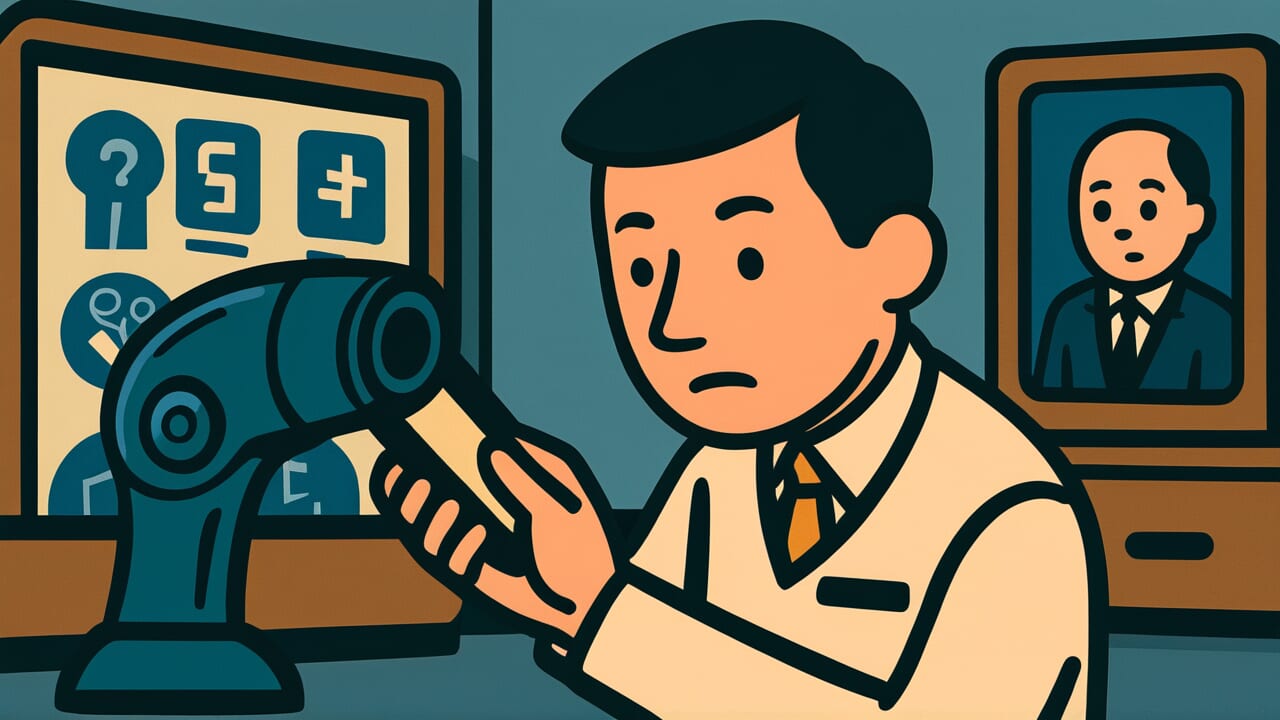How to Read “Nothing is greater for wisdom than leaving out what is doubtful”
Chi wa utagawashiki o kaku yori ōnaru wa nashi
Meaning of “Nothing is greater for wisdom than leaving out what is doubtful”
This proverb teaches that the most important thing for developing wisdom is to boldly discard what is uncertain. To gain true wisdom, you need the courage to deliberately exclude vague knowledge and information with weak foundations.
We live in an age overflowing with information. If you try to absorb everything, you’ll lose sight of what really matters.
This proverb emphasizes the importance of building up only what is certain in learning and thinking. By not clinging to doubtful things and letting them go cleanly, you actually build a solid foundation of reliable knowledge.
People use this saying when struggling to choose what information to keep while studying or researching. It can also help when you’re being swayed by uncertain information.
The proverb shows that speaking only about what you’re sure of is true intelligence. This honesty matters more than pretending to know everything.
Origin and Etymology
This proverb likely comes from the “Doctrine of the Mean” chapter in the ancient Chinese classic “Book of Rites.” The original text reads “Nothing is greater for great wisdom than leaving out what is doubtful.” It’s known as a passage discussing the nature of true wisdom.
The word “kaku” (闕く) is rarely used today. It means “to omit” or “to leave out.” In other words, it means to boldly exclude or remove doubtful things.
This expression was chosen because of Confucian attitudes toward learning. In ancient China, scholars valued not just accumulating knowledge but also judging what not to learn and what not to believe.
Information was limited in those times. People recognized the danger of being misled by uncertain knowledge. They believed that cultivating the ability to discern truth required the courage to first eliminate doubtful things.
The proverb came to Japan along with Confucian teachings. It has been used in academic and self-cultivation contexts. While people tend to focus only on increasing knowledge, this proverb has been passed down as an important guideline for questioning the quality of knowledge.
Usage Examples
- In conducting research, I maintained the spirit of “Nothing is greater for wisdom than leaving out what is doubtful” and excluded unverifiable data from my paper
- Precisely because we live in an age of information overload, I try to communicate only what is certain, following the principle that nothing is greater for wisdom than leaving out what is doubtful
Universal Wisdom
The universal wisdom in this proverb lies in its deep insight into human nature. It addresses our desire “to know” and our vanity of “wanting to appear knowledgeable.”
We instinctively want to fill gaps in our knowledge. When we don’t understand something, we feel anxious and try to fill that void with anything available.
However, our ancestors saw a major pitfall here. Filling gaps with uncertain things might bring temporary comfort, but it’s like building a castle on sand.
Worse, that uncertain knowledge becomes a foundation. It can lead to stacking up more mistaken understandings on top of it.
Having the courage to admit “I don’t know” is actually much harder than pretending to know. People feel ashamed of ignorance and want to be recognized as knowledgeable.
That’s why the act of cleanly discarding doubtful things is proof of intellectual honesty.
This proverb has been passed down through generations because it shows human weakness and the path to overcome it. The truth that real wisdom lies not in the quantity of knowledge but in its quality and honesty never changes across time.
When AI Hears This
Shannon, the founder of information theory, mathematically proved two types of compression: “reversible compression” and “irreversible compression.” A ZIP file can be fully restored, but a JPEG photo with reduced quality can never return to its original quality.
This difference also applies to how we handle knowledge.
Filling uncertain information with “probably this” is like irreversible compression, similar to JPEG. It supplements missing parts with arbitrary values. At first glance, the gaps disappear and everything looks neat.
But the moment you fill it with guesses, the boundary line between “what is certain and what is uncertain” vanishes. You can no longer distinguish where the real data ends and where the fake補完 begins.
On the other hand, leaving unknown parts as blanks is like lossless compression that doesn’t damage information quality at all. The blank may look incomplete, but the blank itself preserves the important information that “this part is unconfirmed.”
In information theory, uncertainty itself is treated as measurable information content. Accurately recording the state of “not knowing” has far more information value than filling it with random answers.
Knowledge filled with guesses has high compression rates and looks good. But it reduces the possibility of restoration to truth to zero. This is the essential warning of this proverb.
Lessons for Today
This proverb teaches us wisdom for living in a flood of information. Open your smartphone and infinite information flows in. It’s become hard to judge what’s right and what’s wrong.
That’s exactly why we need the attitude to courageously let go of uncertain things.
When you try to learn something, you don’t need to absorb everything. Rather, building up only what you understand with certainty leads to deeper understanding in the end.
Vague knowledge like “I don’t really understand, but I’ll memorize it anyway” only causes confusion later.
The same applies to information flowing through social media. Don’t easily believe or spread information whose truth is uncertain. Develop the eye to select only what is reliable.
Not knowing something is not shameful. The honesty to leave uncertain things uncertain is true intelligence.
Take this teaching to heart and reconsider your attitude toward information. Your thinking will surely become clearer, and your judgment will become more certain.



Comments